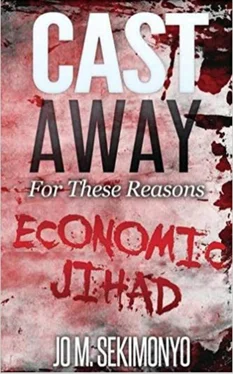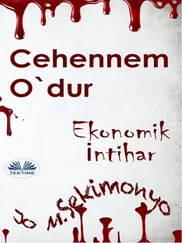Lambert Timothy James - Cast Away - For These Reasons
Здесь есть возможность читать онлайн «Lambert Timothy James - Cast Away - For These Reasons» — ознакомительный отрывок электронной книги совершенно бесплатно, а после прочтения отрывка купить полную версию. В некоторых случаях можно слушать аудио, скачать через торрент в формате fb2 и присутствует краткое содержание. Жанр: foreign_business, management, economics, economics, economics, на английском языке. Описание произведения, (предисловие) а так же отзывы посетителей доступны на портале библиотеки ЛибКат.
- Название:Cast Away : For These Reasons
- Автор:
- Жанр:
- Год:неизвестен
- ISBN:нет данных
- Рейтинг книги:5 / 5. Голосов: 1
-
Избранное:Добавить в избранное
- Отзывы:
-
Ваша оценка:
- 100
- 1
- 2
- 3
- 4
- 5
Cast Away : For These Reasons: краткое содержание, описание и аннотация
Предлагаем к чтению аннотацию, описание, краткое содержание или предисловие (зависит от того, что написал сам автор книги «Cast Away : For These Reasons»). Если вы не нашли необходимую информацию о книге — напишите в комментариях, мы постараемся отыскать её.
Cast Away : For These Reasons — читать онлайн ознакомительный отрывок
Ниже представлен текст книги, разбитый по страницам. Система сохранения места последней прочитанной страницы, позволяет с удобством читать онлайн бесплатно книгу «Cast Away : For These Reasons», без необходимости каждый раз заново искать на чём Вы остановились. Поставьте закладку, и сможете в любой момент перейти на страницу, на которой закончили чтение.
Интервал:
Закладка:
This book emanates from the economic disciplines hijacked by escape artists and mathematicians, for more than two centuries. For all the wrong reasons, economists have blasted into a million small pieces the Holy Grails of the classical Labor Theory of Value and stripped away the humanism and the real world from theoretical foundations. Then they took the pain of stitching some of the pieces back, using pathetic assumptions as Band-Aids.
There is some truth in the quarantined Marxist Fred Moseley's charge that the economic academia system has been built to reward folks who stick with the mainstream. This good man is the Shoichi Yokoi of economics, deprived of fame and fortune, hiding in the jungles of South Hadley in Massachusetts. He firmly believed his former comrades would one day return for him, and together they would launch a final assault on Capitalism. Alas, merely castigating orthodoxy for the ineptness of their theory can neither restore the classical vision of an efficient market nor get us to the Promised Land.
I kick-started this book on a personal note with a letter to a young teenage single mother who is called Mama Vincent. She is a panhandler that my wife and I met in downtown Nairobi, Kenya. At one point, I had to hold young Vincent in my arms to keep law enforcement agents away. My tourist eminence in Kenya shielded Vincent and his mother from police harassment. The city of Nairobi has passed an ordinance criminalizing pandhandling, or shall I say, poverty. I asked then and do so again, "What then is the poor to do?"
Excess in government is spent on the elite in government, and their favored patrons, not on waging a war against the root causes that perpetuate endemic poverty. This modern era apartheid doesn't call any attention because the oppressed and oppressors have the same skin color. Many more cities are taking the same insane approach and have been getting away with it as long as the line drawn doesn't desecrate the burial of race or ethnic disputes.
In my childhood, I was ingrained with the notion that social, commerce and trade, and political disparity was dictated by law of nature; somebody had to be poor to be a servant of the rich! In the mid-90s, wealthy Congolese sought refuge to the west from the civil war. I stand as a witness to how, in a blink of an eye, most of these families lost their accustomed lifestyle of luxury. After living for close to two decades in exile, even the most powerful generals and the former President's inner circle gradually succumbed to the crippling misery. Not surprisingly, a number of the barons and crusaders of the former regime have crawled back home and are vigorously active in the new parasite system. My wise South African friend referenced a law of nature to explain this cycle: "Once a snake, always a snake!"
The personal testimony is to show the damning universal truth that people, as well as nations, are more concerned about themselves until their luck changes. In the dot com collapse of 1995-2000, and the Great Recession beginning in 2008 we saw many Americans were shaken out of their dream of a house with a picket fence. Ordinary hard-working Americans saw their pensions completely wiped out by a few greedy capitalist insiders. In the latter event housing prices fell by over 31%, greater than in the Great Depression of the 1930s. Non-farm employment was higher than in the Great Depression, and lingered longer. The capitalistsâ stimulative move, The Gramm-Rudman Act, actually precipitated the catastrophe by allowing trading in speculative derivatives that were mortgage backed securities entirely unsupported and by default, worthless 2.
Another caustic example is the small group of the Russian oligarchs who have since fallen out of Vladimir Putin's favor, who cannot help but preach justice and equality from their golden exile in London. What is there to say about European countries juggling with mind-blowing debt higher than their worth (Gross Domestic Product)? Add to this picture Brazil, Russia, India, and China, the BRIC countries who are steam-rolling their economic growth at Mother Nature's peril 3. Added to this gumbo the Arab Facebook generation, who are no longer content with the tiny slice of their national wealth while a minority splurges with the rest, are attempting to shift cards.
These recent bubbling volcanoes should awaken our sense that preemptive measures should be sought to break the status quo. In the twenty-first century, the sluggish economists' speech "We will be fine as long as we stay on the current course and tweak the old Capitalism wheel a little bit more," has long lost its potency and relevance. It is more than ever imperative to initiate a cultural revolution and to develop a real alternative to the prevailing brutal and primitive social, commerce and trade, and political system, which is Capitalism.
The loud medley in my mind bubbled out of the ordinary challenge facing every nation on this dying planet: social, commerce and trade, and political injustice (disparity for any punks). It is a result of a painful crusade to uncover a pragmatic way of making the gap negligible. Don't pull your wig out just yet; I am not totally out of my mind, advocating to jump back on the saddle of any of the two dead horses. Socialism and Communism have failed, but now Capitalism is failing us.
There are many elaborate dark labyrinths this book will be taking you through. I firmly believe that economists should leave to religion and medicine the principal goal of uncovering mysteries of the unnatural and natural while consoling or abusing us on the way. Economics' responsibility is to find remedies for or to level out, glut and hoarding before any cerebral vagabondage. Instead, it has been reduced to glorifying socio-economic skewness.
I have noted the skepticism about whether any social, commerce and trade, and political form other than Capitalism would ever work. Nowadays, people fail to realize that Capitalism was part of paradigms based on barbaric social norms and practices. It is probably true when a social arrangement dominates a field for so long as Capitalism has, it becomes easier to forget that other models, which address different goals and questions, exist or could be constructed. After we all begin to believe that there is only one way of doing things, it is the most dangerous lure of all.
Where is the magic book to find out how to break the spell? Like a raging bull, to the disbelief of friends and colleagues, I abruptly interrupted my promising intellectual prostitution career and jumped on what had seemed to be academic vagabondage. My initial objective was to trace the whole commerce system from accounting, finance, management, and end up in economics.
As I was delving into the planned last leg of my journey, I was nauseated by economic "gurus" who spent more time claiming incidental correlation to impress the public instead of explaining in a clear and concise way the social, commerce and trade, and political mechanisms and remedies to global economic troubles. Regrettably, the laziness of these orators has thwarted the audience's viewpoint. What I can share from my experience with any of you guys who are thinking about questioning today's dominant form of commerce and trade, Capitalism, don't expect an effusive welcome; you should be ready to face the furor of delusional McCarthyists, as I usually do.
From that experience it has become my life ambition to hunt down the answer to those questions of what my solutions would be. In my search, I determined that those remedies ought not be relevant only to the United States of America, the Mongolian People's Republic, or the Democratic Republic of the Congo but have to be applicable and relevant to any fatherland or motherland. The theos of society in general would have to change and given a permanent solution. The status quo of belief here today and gone tomorrow regarding the social compact had to stabilize into one that was permanent, fair, equal, right (as versus wrong) and just.
Читать дальшеИнтервал:
Закладка:
Похожие книги на «Cast Away : For These Reasons»
Представляем Вашему вниманию похожие книги на «Cast Away : For These Reasons» списком для выбора. Мы отобрали схожую по названию и смыслу литературу в надежде предоставить читателям больше вариантов отыскать новые, интересные, ещё непрочитанные произведения.
Обсуждение, отзывы о книге «Cast Away : For These Reasons» и просто собственные мнения читателей. Оставьте ваши комментарии, напишите, что Вы думаете о произведении, его смысле или главных героях. Укажите что конкретно понравилось, а что нет, и почему Вы так считаете.












